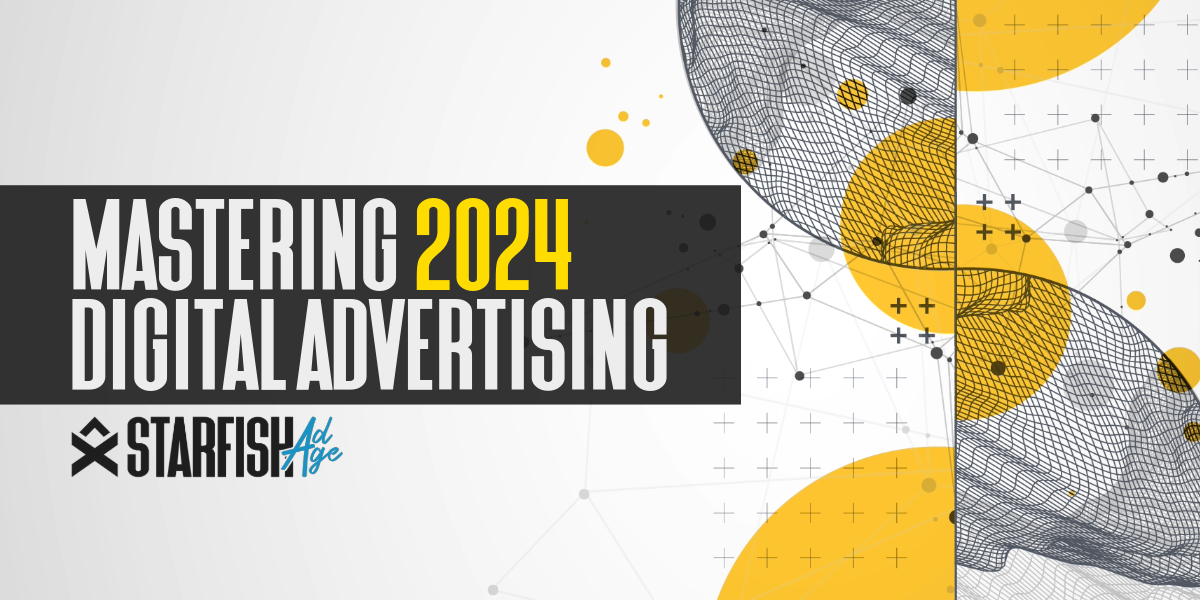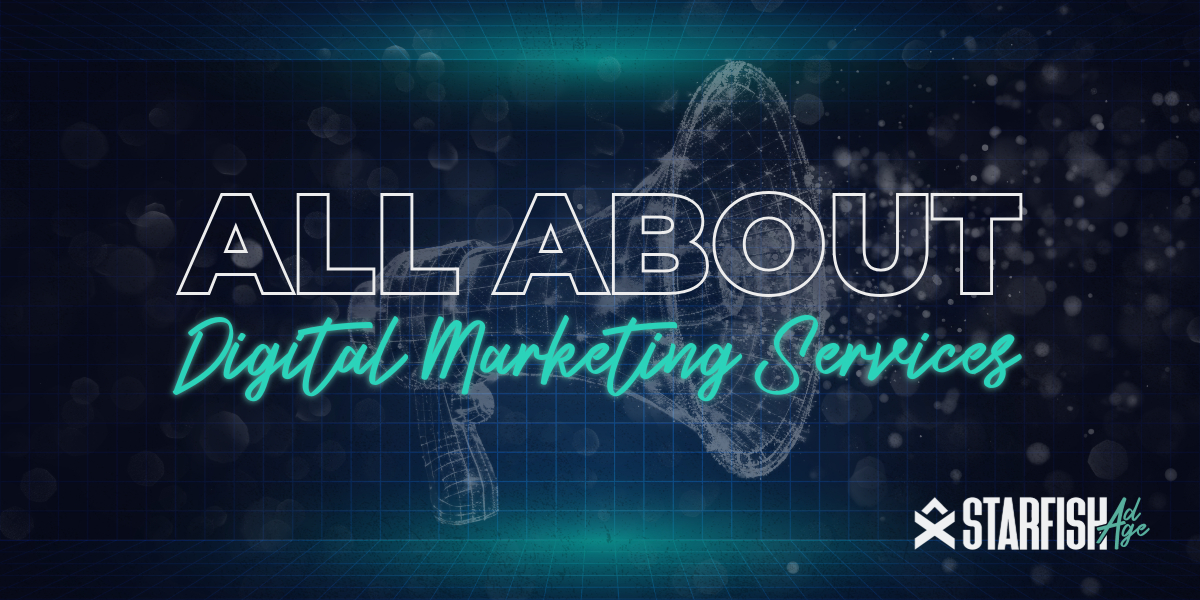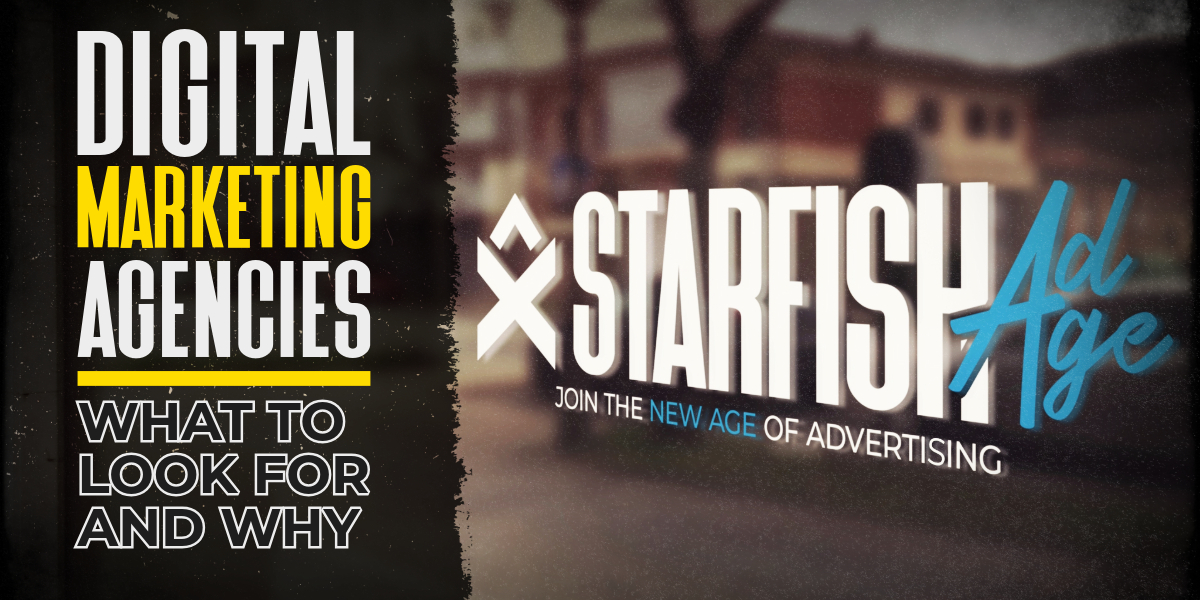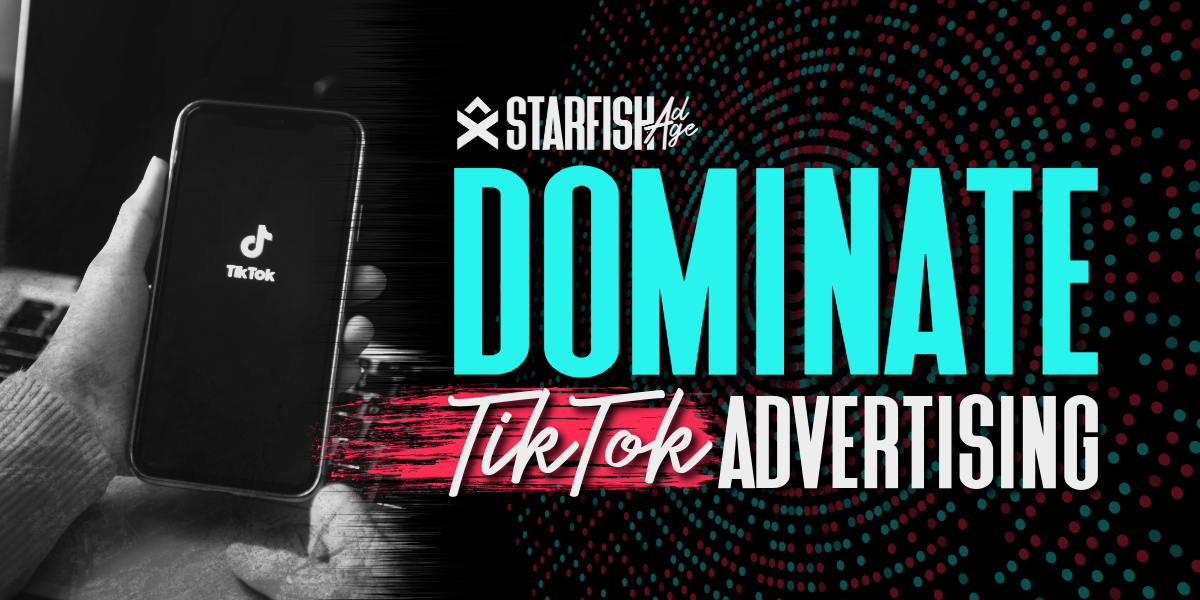
14 Digital Marketing Solutions to Grow Your Business
14 Essential Digital Marketing Solutions to Boost Your Business Growth

In the constantly changing landscape of online advertising, it is crucial to be knowledgeable about strategies for engaging audiences, optimizing budgets, and analyzing performance. This guide simplifies this complex process and provides a clear roadmap towards becoming proficient in digital advertising.
Digital advertising functions similarly to traditional advertising, but with distinct features and benefits. Its main purpose is to utilize online platforms to market products and services through creative and content creation ideas and advertisement writing to meet specific goals.
Eye-catching advertisements that attract users and promote brand recognition are especially crucial on most social media platforms and channels. An effective strategy for accomplishing this goal is to carefully craft engaging posts specifically designed for various social media outlets.
The world of digital advertising is as varied as the platforms it appears on. These include display ads, mobile ads, social media analytics, and audio ads that are customized to target users based on their online behavior to increase brand exposure and promote special deals.
Successful digital advertising relies heavily on comprehending the distinct features of each platform and utilizing them effectively while also producing interesting and pertinent content.
The realm of digital advertising has significantly evolved from its conventional origins. Traditional methods mainly rely on offline platforms such as television, radio, and print media, which can be costly. On the contrary, digital advertising takes advantage of online channels that provide more cost-effective options while also allowing for targeted promotional tactics.
In addition to this efficiency in expenses, a data-driven approach is another benefit of utilizing digital advertising techniques, leading to enhanced decision-making capabilities.
Digital advertising has been around since the 1990s, when banner ads first appeared. Over time, this industry has undergone significant changes and innovations. Companies like Facebook have revolutionized targeted advertising, while Google has popularized pay-per-click methods and cemented search engine marketing as a crucial aspect of digital advertising.
The development of various ad formats has greatly influenced the success of digital campaigns. Starting with the very first banner ad on the internet and continuing to modern solutions such as video ads and AI-powered techniques, these advancements have amplified digital advertising’s ability to captivate audience attention and offer personalized interactions.
The ever-changing world of digital advertising has brought about new opportunities for marketers with the emergence of advanced technologies. AI, in particular, plays a crucial role in this field by examining consumer actions, facilitating omnichannel approaches, and streamlining marketing duties.
An effective digital marketing strategy should:
Integrating digital marketing strategies with the objectives of a business allows for the setting of practical marketing goals, determining which tactics to focus on first, and pinpointing crucial metrics for measuring success. This alignment not only increases visibility but also attracts relevant audiences, drives conversions, and creates synergy with other areas of the company.
At its core, successful digital marketing revolves around the precise targeting of specific audiences and tailoring messages to their individual preferences. This can be seen in the approaches used for both paid search ads, which center on relevant keywords and phrases, and social media advertising, which hones in on social media posts and on targeted demographics, interests, and behaviors.
The effectiveness of digital campaigns relies on various elements, including the development of creative content, the design of advertisements, and effective budgeting and bidding strategies. Capturing attention and effectively communicating with the intended audience are crucial aspects that rely heavily on the creativity and design employed in these campaigns. The target audience remains a key consideration throughout this process.
The success of digital marketing efforts heavily relies on the creative process and design of advertisements. Key factors in creating an impactful ad include a strong headline that grabs attention, concise yet persuasive messaging, a compelling call-to-action, and addressing how the audience’s issue will be resolved.
These components play a significant role in crafting an advertisement that captures interest and generates desired outcomes.
Proper budgeting and bidding are crucial elements for a successful digital campaign. It involves smartly utilizing ad spending to achieve the highest possible conversion value while also avoiding overspending. This is a fundamental concept for achieving a high return on investment (ROI) for any campaign.
Social media has emerged as a potent medium for expanding the scope of digital advertisements. To create an impactful social media marketing strategy, it is essential to have a deep understanding of your target audience. This can be achieved by leveraging the capabilities of a social media management tool, which facilitates:
Leveraging free resources for promotion on different social media app platforms.
Paid social advertising refers to the use of paid, sponsored advertisements on popular social media platforms. These social media accounts include Facebook, Instagram, Twitter, LinkedIn, and YouTube, all significant channels for this form of marketing.
Brands can strengthen their relationship with consumers by actively interacting on social media platforms, ultimately fostering loyalty to the brand and promoting user-generated content. Understanding the personalities of followers and influencers allows brands to tailor and create content specifically for them, cementing their loyal support.
To assess the effectiveness of digital ads, it is important to regularly track relevant metrics and utilize analytics tools. The essential metrics for evaluating ad performance include overall website traffic, bounce rate (the percentage of website visitors who leave after viewing only one page), page value (how much a particular webpage contributes to conversions or sales), impressions (number of times an ad was displayed), CPM (cost per 1000 impressions charged by publishers), average click-through rate, conversion rates (percentage of users who take the desired action, such as making a purchase), and cost per conversion.
Analyzing metrics such as impressions, clicks, conversions, and ROI can provide valuable insights into the performance of an ad campaign and help shape future marketing strategies.
Among these metrics, both impressions (the number of times an advertisement is displayed) and clicks (instances where a user interacts with the advertisement by clicking on it) play crucial roles in determining the effectiveness of an advertisement.
Analytics tools offer valuable insights and aid in optimizing digital advertising strategies. They have numerous advantages, including:
By incorporating analytics tools into your approach, you can strengthen your digital advertising endeavors by utilizing data-driven decision-making methods for achieving better outcomes.
Developing material for online advertisements requires the production of compelling videos and convincing ads. The content creation process is a crucial aspect for businesses as it holds significant influence on brand recognition, attracting potential customers, engaging them effectively, ensuring their satisfaction, increasing website traffic, and ultimately contributing to generating revenue.
Video content is extremely successful in captivating user attention due to its engaging nature. The high engagement and effectiveness of video ads can be credited to their ability to tell a story, convey clear messages, and target specific audiences with tailored content.
It is essential to generate persuasive advertising content to effectively communicate the intended message and motivate users to take action. The process of creating compelling ad copy plays a significant role, as it directly influences clicks, views, and conversions by effectively conveying the desired message and prompting user engagement.
“Search engine optimization” marketing involves utilizing search engines, display advertising, and shopping ads to improve visibility on search engine results pages. This digital marketing strategy aims to boost the presence of a website in online searches.
Specifically designed for maximizing exposure on different online platforms such as Google or Bing, SEM is a crucial tool for driving traffic toward websites through enhanced visibility in relevant search queries. By leveraging techniques like display advertisements and shopping ads alongside traditional SEO methods, businesses can effectively increase their reach and audience engagement.
The utilization of search engines is essential in driving both website traffic and exposure for digital advertisements, particularly when aiming to promote a blog post or social strategy. Through the use of paid advertising options on these platforms, businesses can extend their visibility beyond organic search results.
In terms of digital marketing, search engines hold great significance, as they provide a means for companies to showcase their ads using a paid approach. This allows for increased visibility and reach beyond what can be achieved by traditional ads solely relying on unpaid or “organic” searches.
Display advertising and shopping ads are effective marketing tools to enhance brand visibility and increase sales. Shopping ads, in particular, utilize your product data to create targeted advertisements.
Effectively managing ad campaigns that cover multiple channels and involve retargeting techniques requires careful coordination. This includes developing a strategic plan, utilizing a multi-channel marketing platform, setting clear campaign goals, breaking down silos between different channels to coordinate cross-promotional efforts, conducting thorough research on the target audience, and selecting the most appropriate channels for reaching your buyer persona.
The coordination of a multi-channel campaign is crucial to maintaining a unified and effective marketing strategy across different platforms. This can be achieved through consistent communication to ensure coherence in messaging, data analysis for strategic planning, using templates and cloning ad campaigns, delegating tasks, and collaborating with team members. Utilizing a centralized platform allows for seamless management while implementing real-time monitoring helps track the success of the campaign.
The use of retargeting strategies can effectively target keywords to draw back visitors and improve the chances of conversions. This marketing approach targets individuals who have previously interacted with a website or social media platform but did not follow through with a desired action.
Effective influencer marketing involves selecting appropriate influencers and evaluating the effectiveness of campaigns by social media channels. Incorporating new approaches for engaging with influencers can greatly enhance audience reach and engagement, leading to more personalized connections with potential customers.
Carefully selecting the appropriate influencers is essential to effectively use social media ads to reach and establish credibility with the desired target audience. Within digital advertising campaigns, influencers are responsible for:
Assessing the effectiveness of an influencer campaign entails monitoring key performance indicators such as audience engagement, reach, and return on investment. To determine ROI for such campaigns, it is crucial to establish clear objectives at the onset, identify relevant metrics to measure success, tally up expenses incurred in running the campaign, compute returns generated from it, and analyze all these factors comprehensively.
To effectively handle legal considerations in digital advertising, it is crucial to have a thorough comprehension of data privacy regulations and adhere to ethical principles in advertising. Complying with established standards for advertisements must also be prioritized.
Overall, digital advertising provides a variety of options for companies to market their offerings, interact with their target audience, and monitor the success of their social media campaigns. By comprehending the distinct features of digital advertising, utilizing emerging technologies effectively, aligning business objectives with online strategies, and handling the complexities associated with ad campaigns. Businesses can optimize their efforts in this realm and accomplish their desired business goals.
Online advertising, also referred to as digital marketing, is a promotional method used to showcase a brand, product, or service through various online platforms such as websites, various social media networks, and search engines. It encompasses multiple formats, including text-based ads and audio-visual promotions. This approach has become an essential part of modern-day marketing strategies.
Digital advertising is a specific component of digital marketing that specifically deals with online promotions, while the scope of digital marketing extends to any form of promoting products or services on the internet. This can include tactics such as SEO, content creation, social media management, and email campaigns. Both have the common goal of increasing sales. Digital marketing has an overall aim for long-term growth, whereas digital advertising focuses more on immediate results.
To successfully align your marketing strategy with digital initiatives, it is crucial to conduct audience research and identify key performance indicators. These steps will allow you to create a comprehensive plan that supports your business goals while consistently monitoring its effectiveness. By regularly tracking performance, you can ensure that all digital efforts are in line with the overall objectives of your company.

14 Essential Digital Marketing Solutions to Boost Your Business Growth

Learn about SEO, PPC, social media marketing, content marketing, and more to drive traffic and conversions. Read now!

Learn how to select the best digital marketing agency for your small business, the benefits of hiring an agency, and tips for maximizing your online presence.

Learn how to leverage TikTok advertising, ad formats, targeting options, and best practices to increase brand awareness, and drive sales.

Learn about Connected TV (CTV) ads, their benefits, and how they work. Understand programmatic CTV advertising for effective digital marketing campaigns.
All Rights Reserved | Starfish Ad Age LLC | 2023 | Privacy Policy